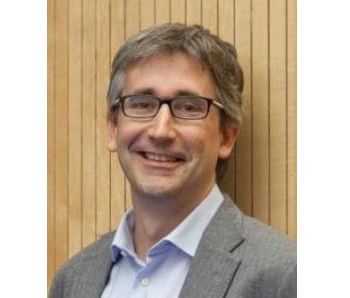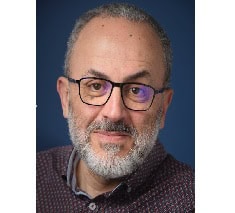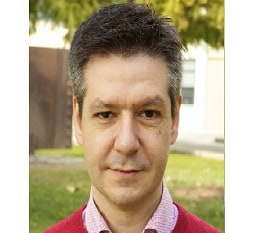




Automated vehicles (AVs) have the potential to transform mobility, offering solutions to pressing urban challenges such as congestion, environmental degradation, and road safety. By integrating AVs into sustainable mobility systems, we can envision safer, more efficient, and inclusive transport networks that reshape cities and enhance quality of life.
However, significant technological challenges remain. Effective decision-making in AVs must address the coexistence of human-driven and automated vehicles, requiring systems that are robust, adaptive, and reliable under diverse conditions. Prediction and control present additional hurdles, demanding models capable of understanding complex interactions and generalizing across varied scenarios. Fail-operational designs are critical to ensuring safety and continuity during system failures, while balancing safety and security requires integrated approaches across vehicle, edge, and cloud systems.
This talk will explore the opportunities these challenges present. We will discuss frameworks for generalizable and trustworthy AI, emphasizing causal reasoning and dynamic adaptation to edge cases. Fail-operational strategies that maintain safe operation in degraded conditions will be examined, alongside innovative approaches to human-vehicle interaction through shared control and cognitive architectures. By addressing these areas, AVs can unlock their full potential, driving a transformative shift in urban mobility.

Prof. Jorge Villagrá
Head of Autopia Program
Centre for Automation and Robotics (CSIC-UPM), Madrid – Spain
Jorge Villagrá holds a degree in Industrial Engineering from the Polytechnic University of Madrid and a PhD in Real-Time Computing, Robotics and Automatic Control from the École des Mines de Paris (France) since 2006. He leads since 2016 the AUTOPIA research group of CSIC, a pioneer in autonomous driving in Spain.
He is a regular speaker in several specialized forums and participates as an independent expert for the European Commission in the areas of Robotics, Internet of Things and Autonomous Mobility.
He has led more than 25 research projects and published more than 150 articles in international journals and conferences on automated and connected vehicles.
This keynote will explore a machine learning-driven roadmap for advancing biofouling detection and estimation in tidal stream turbines.
The presentation will encompass an overview of biofouling and its impact on turbine efficiency and durability, an evaluation of current detection and estimation methods, and a review of recent advancements and persistent challenges in the field.
The presentation will also highlight emerging opportunities and innovative approaches, paving the way for more robust and accurate biofouling management solutions in marine renewable energy systems.

Prof. Mohamed BENBOUZID
IEEE Fellow, IET Fellow
University of Brest, France
Mohamed BENBOUZID completed his Ph.D. in electrical at the National Polytechnic Institute of Grenoble, Grenoble, France, in 1994. He further earned his Habilitation à Diriger des Recherches degree from the University of Amiens, Amiens, France, in 2000.
Following the completion of his Ph.D., Dr. Benbouzid joined the University of Amiens, where he held the position of Associate Professor in electrical engineering. Since September 2004, he has been affiliated with the University of Brest, Brest, France, where he currently serves as a Full Professor in electrical engineering.
Prof. Benbouzid primary research interests and expertise include control of electric machines, variable-speed drives for traction, propulsion, and renewable energy applications, and fault diagnosis of electric machines.
Prof. Benbouzid is an IEEE Fellow and a Fellow of the IET. He is the Editor-in-Chief of the International Journal on Energy Conversion and the Applied Sciences (MDPI) Section on Electrical, Electronics and Communications Engineering. He is a Deputy Editor for the IET Renewable Power Generation.
Type 1 diabetes (T1D) is a chronic metabolic disease characterized by an autoimmune destruction of the beta cells in the pancreas, responsible of insulin secretion which promotes glucose transport into the cells. The resulting absolute insulin deficiency results in high blood glucose levels (hyperglycemia). Therefore, people with T1D require exogenous delivery of insulin in order to survive. Sustained elevated glucose levels can lead to long-term complications (retinopathy, nephropathy, heart disease), which place a heavy burden to the healthcare system. Due to the complexity of the glucose-insulin metabolism, achieving good glucose control is often a very difficult task. The development of continuous glucose monitoring paved the way to the development of automatic insulin delivery systems, also called artificial pancreas systems. In the past 15 years there has been an intensive research effort from different players in the artificial pancreas development, which has translated into a first system reaching the market in 2017, having nowadays may more. However, all these commercial systems still need patient intervention for meal control (this is referred as ‘hybrid artificial pancreas’), being a big burden.
This has been thanks to important contributions from modelling and control engineering, in combination with technological and pharmacological achievements. Automatic glucose control is a very challenging problem, characterized by large intra and inter-individual variability, slow insulin action due to unphysiological subcutaneous infusion and large disturbances like meals and exercise, with great physiological complexity. Despite this, automatic insulin delivery is nowadays a reality and has revolutionize T1D treatment. However, room for improvement, especially during day time control subjected to the main disturbances, still exists. Besides, full automation without (or with minimal) patient intervention is desired for improved quality of life.
This raises new challenges (and opportunities) in the field, that will lead to next generation artificial pancreas systems. All these aspects will be reviewed in this talk aiming at bringing to the attention of the field a challenging but exciting control problem like automatic glucose control, from which people with type 1 diabetes are already benefiting.

Prof. Jorge Bondia
Institute of Automation and Industrial Computing
Universitat Politècnica de València, València, Spain
Jorge Bondia started his academic career in 1995 at the Department of Systems Engineering and Control at Universidad Politécnica de Valencia, Spain, reaching his current position of Full Professor in 2017. During this period, he has taught courses on automation, control engineering, and biomedical engineering. He conducts his research at the Institute of Control Systems and Industrial Computing (Institute ai2). He obtained his PhD in Computer Science in 2002, focusing on uncertain dynamical systems. In 2004, he began his own research line on diabetes technology and the artificial pancreas, to which he has been fully devoted since then. He currently leads a multidisciplinary team of control engineers, mathematicians, and endocrinologists in collaboration with several hospitals in Spain. His main research lines include modeling of type 1 diabetes pathophysiology, PK/PD modeling, methods for characterizing intra-patient variability, glucose prediction under large variability with minimal manual inputs, control algorithms for the artificial pancreas (both single- and multi-hormone), sex dimorphism in diabetes, wearable technologies, and technology for pediatric diabetes education. Since 2018, he has been a principal investigator at the Spanish Excellence Diabetes Research Center CIBERDEM.

Copyright © ICCAD 2025